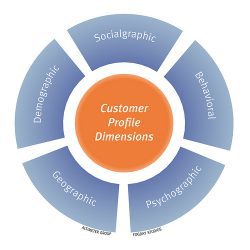“Task management” does not really require too many explanations. It is simple. A system which helps manage the innumerable tasks that turns the wheel around. Recording, assigning and monitoring tasks are the minimum that this system is expected to do. That is how it all began
And then the system started evolving when some thinkers put their head to it. And said – “While we are it, let us make the system work some more for us”. So, the expectations from a simple task management system were tweaked and turned into minimum benchmarks. Some of these minimum expectations were:
- Easy Set Up – No organisation has the patience or inclination to invest in elaborate set ups. For task management. Be it in terms of hardware, software or training, the set up can no more be elaborate.
- Implementation – The learnability of the task management system has to be simple. With little or no training, the employees are expected to start using it immediately. After all, it is just a task management system.
- Simplicity Equals To Customer Delight – So simple that it simply delights you. To be able to show how well the team is performing and how brilliantly the processes are churning measurable outcomes is exactly the kind of thing the customers would love.
- No Risk – A task management system or in other words a helpdesk which does not pose any risk to the organisation – from infrastructure, IT or data point of view.
- Mobile – Is the system mobile? With on-the-go employees and remote teams becoming the norm of the day, a team management system must be accessible from anywhere anytime.
- Support – A glitch can never be ruled out. Is there someone available 24/7 to attend to queries, emergencies or server breakdowns?
The list can go on.. But are these expectations good enough for today’s dynamic environment? There are thousands of tasks, escalations, bottlenecks, etc recorded in this task management system. Apart from drawing productivity reports, can it be evolved to benefit the organisation for the better forever?
YES!
What a task management system actually contains is a wealth of tacit knowledge – Innumerable issues and their solutions recorded diligently as tasks. Innumerable communication trails which hold answers to bottlenecks. It holds the power of a knowledge management system in itself. How?
- If knowledge can be extracted when required, it can increase the operational efficiency without increasing costs.
- It can hold all the business knowledge in a centralised repository.
- Issue resolution can become faster and lead to more customer delight.
- With every issue and solution getting documented & saved in the knowledge base, critical business knowledge can be made available anytime. More importantly, at the right time. This would mean zero duplication of efforts, reinvention of wheel and wasted resources. All in all, a huge cost saving!
- Knowledge sharing can be sparked as multiple people can view and add to the knowledge base. Team members can add their comments, providing their views on any topic.
- The knowledge base can become an online self-help guide for staff training and support purposes.
- If the knowledge base is exposed in public domain, it can also act as a support forum for the user community. This would be a huge incentive for the external customers.



